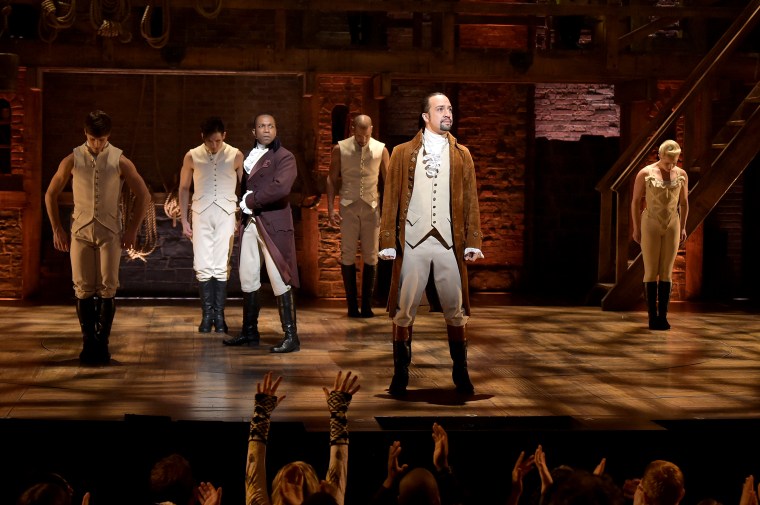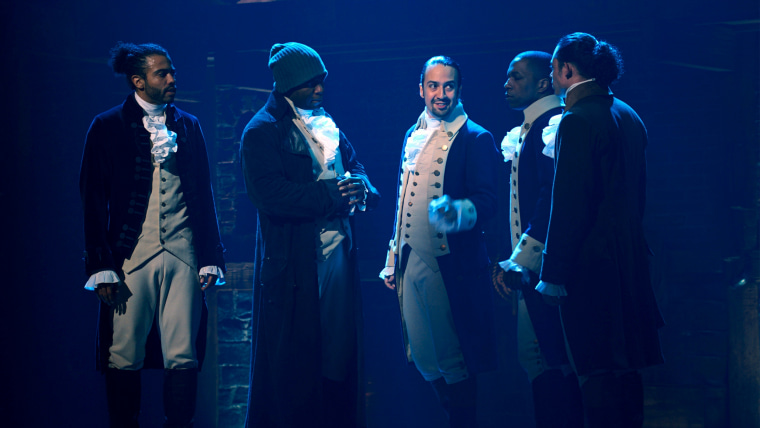How does a bastard, orphan, son of a whore and a Scotsman, dropped in the middle of a forgotten spot in the Caribbean by providence, impoverished, in squalor — become a central character in a 2020 Supreme Court decision?
Supreme Court Justice Elena Kagan did not throw away her shot to make a pop culture reference to the venerable Broadway show "Hamilton" — and the "10-dollar founding father without a father" at the story’s center — in a decision the court handed down Monday declaring that "faithless electors" can't go rogue at the Electoral College.
Kagan, who wrote the court’s unanimous decision, drew on the play to playfully make the point that the 538 people who cast the actual votes for president in December as part of the Electoral College are not free agents and must vote as the laws of their states direct.
Referring in her opinion to the 1800 election, a central part of the play’s narrative build of tensions between Alexander Hamilton and Aaron Burr, Kagan explained how the race that year was essentially decided by an individual — Hamilton. The race set the stage for the creation of the Twelfth Amendment, "whose main part," Kagan wrote, "provided that electors would vote separately for President and Vice President."
In the 1800 election, Thomas Jefferson and Burr ran that year as a ticket, "with the former meant to be President and the latter meant to be Vice," Kagan wrote.
But for that to occur, under the rules at the time (which mandated that the vice president was the second-place finisher in the general election), Jefferson would have had to place first, and Burr second. Instead, the two men effectively tied, throwing the race to the House of Representatives, where Hamilton exercised his influence as a Founding Father.
"Alexander Hamilton secured his place on the Broadway stage — but possibly in the cemetery, too — by lobbying Federalists in the House to tip the election to Jefferson, whom he loathed but viewed as less of an existential threat to the Republic," Kagan wrote. "By then, everyone had had enough of the Electoral College’s original voting rules," Kagan added, effectively making appearing in a modern Supreme Court decision one fewer item on the list of the "million things" actor Lin-Manuel Miranda sang about Hamilton having not yet done.

Earlier in the decision handed down Monday, Kagan, a member of the court’s liberal wing, also made an unsubtle reference to "Veep," the wacky HBO comedy starring Julia Louis-Dreyfus, that poked constant fun at American Democracy’s unusual maze of rules and norms, in pointing out the peculiarities of the early Republic through the lens of the 1796 presidential election. At the end of the show's fifth season, Louis-Dreyfus' Selina Meyer loses re-election following an Electoral College tie and a House vote that sends her opponent's running mate to the Oval Office.
"The Nation’s first contested presidential election occurred in 1796, after George Washington’s retirement," Kagan wrote. "John Adams came in first among the candidates, and Thomas Jefferson second. That meant the leaders of the era’s two warring political parties — the Federalists and the Republicans — became President and Vice President respectively. (One might think of this as fodder for a new season of 'Veep.')"

